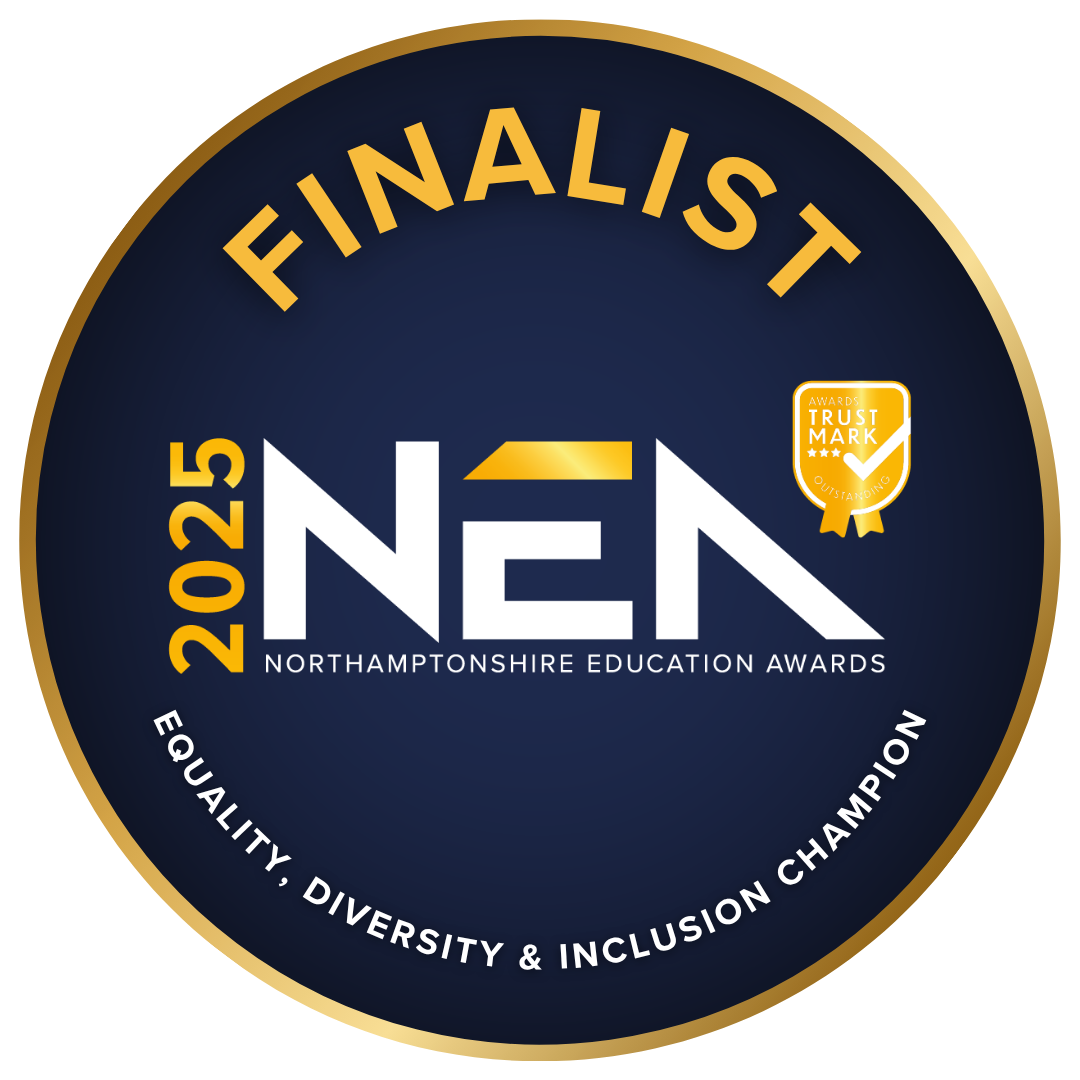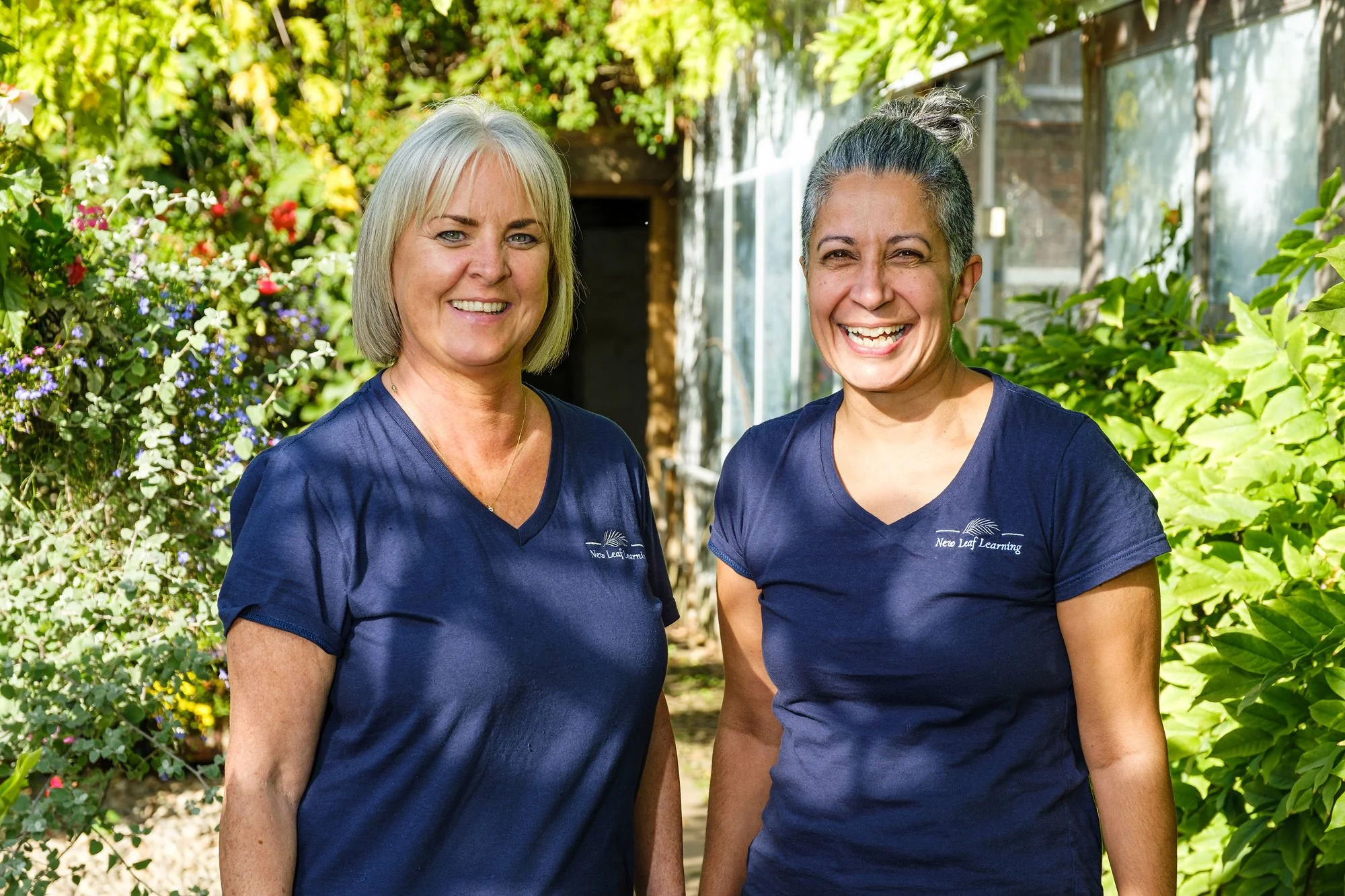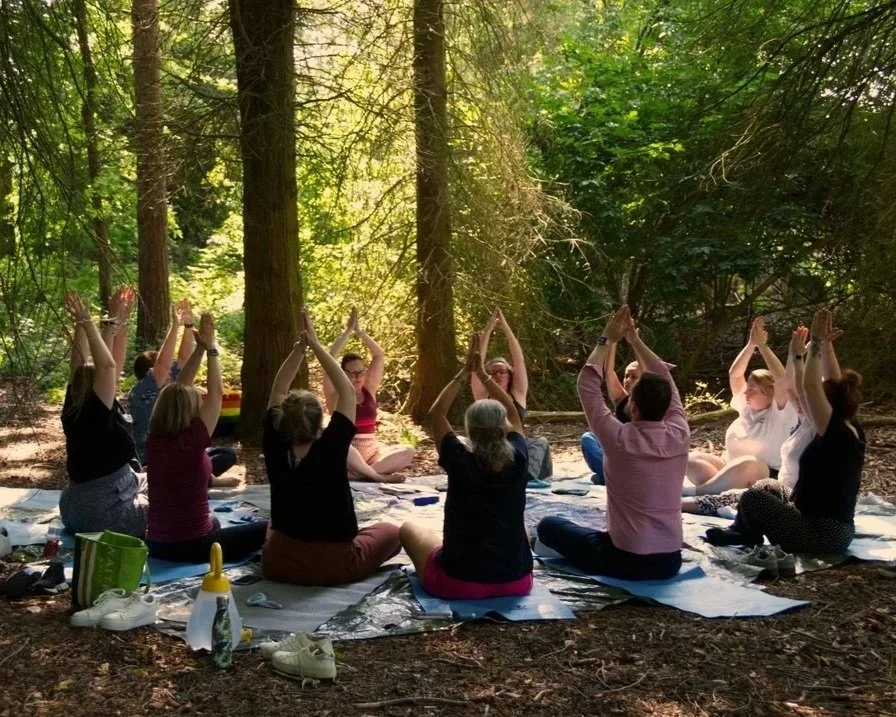
Nurturing resilience through nature
Based at Courteenhall Estate in Northamptonshire, New Leaf Learning helps children grow with confidence and connection through nature, guided by our unique TRUST method.
Our mission
Our mission is to help primary school children grow, thrive, and achieve their full potential - no matter their starting point.
We work in partnership with schools, families, and communities to create nurturing learning environments in nature that build confidence, resilience, and a love of learning.
Through evidence-based programmes and personalised support, we help children overcome barriers, discover their strengths, and develop the skills they need for a brighter, more independent future.
In this video, Alex Preston — Lead Teacher and Designated Safeguarding Lead — whose 20 years of experience, deep expertise in psychology and educational neuroscience, and creation of The TRUST Programme introduces what shapes the compassionate, evidence-informed approach she brings to New Leaf Learning.
New Leaf Learning is a registered charity - number 1202923.
Our method
At the heart of New Leaf Learning is our unique TRUST method—a nurturing framework that builds children’s confidence, resilience, and readiness to learn.
Each course runs one day a week for five weeks (half an academic term), with small groups to ensure personalised attention and a safe, supportive environment.
Designed to help every participant grow in self-awareness, wellbeing, and motivation, the programme offers a balance of guided reflection and practical skill-building.
Partially funded through charitable support, places are offered via school and community referrals, ensuring that children who will benefit most can access the course at no cost to families.
-
The TRUST method is New Leaf Learning’s unique framework for helping children build confidence, wellbeing, and readiness to learn. It stands for:
T – Trying: Giving your best effort
R – Resilience: Developing skills to overcome challenges and stay motivated
U – Understanding: Building self-awareness, understanding of others and empathy
S – Self Regulation: The ability to change your emotional state
T – Teamwork: Learning to collaborate, communicate, and support one anotherThis nurturing approach supports emotional growth and academic progress, helping every child feel capable, confident, and ready to thrive.
-
Each course runs one day a week for five weeks , allowing time for meaningful reflection, growth, and skill development.
Sessions are delivered in small, supportive groups of up to six children, ensuring every participant receives individual attention and the chance to build strong, trusting relationships with both peers and facilitators.
This small-group approach creates a safe and nurturing space where children can share experiences, practise new strategies, and make genuine progress in confidence, resilience, and readiness to learn.
-
Accessible, affordable and impactful
There are no referral criteria — schools choose which children and families they feel will benefit most. Each course supports small groups in a safe, supportive environment.
The programme is partially funded through charitable support:
Schools currently pay £995 of the total cost, with the remainder subsidised by grants and donations. This covers a group of 6 children.
Additional children cost £200 each, maximum of 8 children per course.
There is a maximum of 2 school adults included in each course fee.
Additional school adults are charged at £100 each per course.
We are actively seeking commissioning and funding partners to keep costs low and ensure access for all, as the actual running cost of each course costs the charity £3500.
For larger staff teams, we also offer:
Whole Staff TRUST Training — a one-day introduction (£1,500, up to 30 staff)
3 x 2-hour training series on relational practice, safe learning environments, and trauma-informed approaches (£1,200, up to 30 staff).
to allow us to continue to offer these subsidised prices for schools.
-
Group provision inside The Old Grammar School and outside in the grounds of the beautiful Courteenhall Estate, Northampton, with measurable impact. The children take part in fun activities whilst they work on the 5 key elements of TRUST.
Children are assessed continuously as well as formally at the beginning and end using the headings that are applied in the Strengths and Difficulties Questionnaire (Goodman,1997).
From September 2022, schools identified areas that they considered important in the current climate.
Children attend the nature-based provision at Courteenhall Estate, one day a week for a minimum of 5 weeks (by arrangement). Every day the children will take part in a walk and talk, and a yoga session with an accredited provider for 45 minutes. Other activities may include elements from Theraplay, Drawing and Talking and 123 Magic.
We stay abreast of current, approved research from the fields of psychology and education and particularly educational neuroscience.
Children are taught strategies to support appropriate emotional regulation.
The children have experiences in:
Den building, pond-dipping, slack-line, fire, drawing, crafts, whittling, feeding animals, gardening, cooking, bug hunting and more.
-
Schools and New leaf teachers work together to select balanced groups according to the each child’s individual needs and the needs of the group.
There are no referral critera.
Places are allocated through referrals from schools, local authorities, and community organisations who identify children that would benefit from additional wellbeing and learning support.
To apply, you must be a school or a referrer and complete our initial discussion form.
Once the child is accepted, we work closely with schools and families to ensure each child is placed in the most suitable group and receives the tailored support they need to thrive.
FAQ
-
Who is eligible to take part in the TRUST Programme?
Schools may nominate primary-aged children (typically ages 5-11) who are currently struggling to engage in mainstream learning. There are no formal referral criteria — schools select the children and parents/carers they believe will most benefit.
-
What does the TRUST acronym stand for, and why is it important?
TRUST stands for Trying, Resilience, Understanding & empathy, Self-regulation and Teamwork. These are the five core skill-areas the programme teaches, helping children grow confidence, emotional regulation and collaboration.
-
What is the structure and duration of the programme?
The programme runs one day a week over five weeks, typically groups of 5-7 children attend alongside two school staff, with parallel parent-sessions and staff CPD built in.
-
Where does the programme take place and what activities are included?
Sessions happen outdoors at Courteenhall Estate in Northamptonshire (not open to the general public). Activities include den-building, pond-dipping, slack-lining, gardening, cooking, animal care, and yoga/meditation for self-regulation.
-
What role do parents/carers and school staff play?
Parents attend dedicated workshops to learn strategies for behaviour support and nurture. School staff take part in trauma-informed CPD, enabling them to embed the learning back in school.
-
How much does it cost and how is it funded?
The cost to schools for the standard 5-week group, 1 day a week, is subsidised (e.g., around £995 for one group) with additional children or adults charged extra. Funding is supplemented via donations, grants and business sponsorships.
-
How is progress measured and what evidence is there of impact?
Progress is measured using formal assessment tools (e.g., the Strengths & Difficulties Questionnaire) alongside ongoing monitoring. Early trials have shown improvements in self-regulation, resilience and classroom engagement.
-
How can a school or parent/carer refer or get involved in the programme?
Schools (or parents via schools) should contact NLL via phone or email to express interest, discuss suitability and check availability. Schools are encouraged to pick children and engage parents early.
-
Is the programme only for children with identified special educational needs (SEND) or trauma histories?
No — while many children on the programme may have SEND or trauma backgrounds, the programme is open to children who are simply not currently engaging in mainstream learning and could benefit from a connection-focused nature-based intervention.




